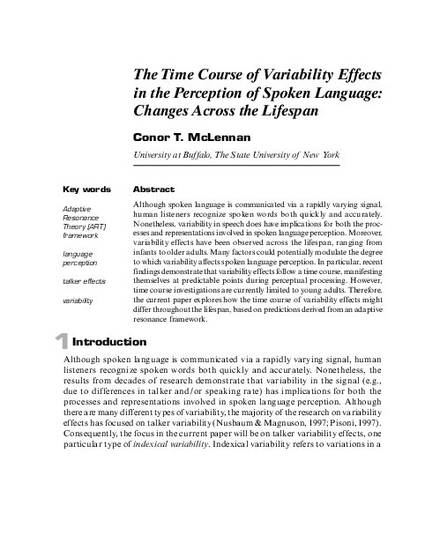
Although spoken language is communicated via a rapidly varying signal, human listeners recognize spoken words both quickly and accurately. Nonetheless, variability in speech does have implications for both the processes and representations involved in spoken language perception. Moreover, variability effects have been observed across the lifespan, ranging from infants to older adults. Many factors could potentially modulate the degree to which variability affects spoken language perception. In particular, recent findings demonstrate that variability effects follow a time course, manifesting themselves at predictable points during perceptual processing. However, time course investigations are currently limited to young adults. Therefore, the current paper explores how the time course of variability effects might differ throughout the lifespan, based on predictions derived from an adaptive resonance framework.
